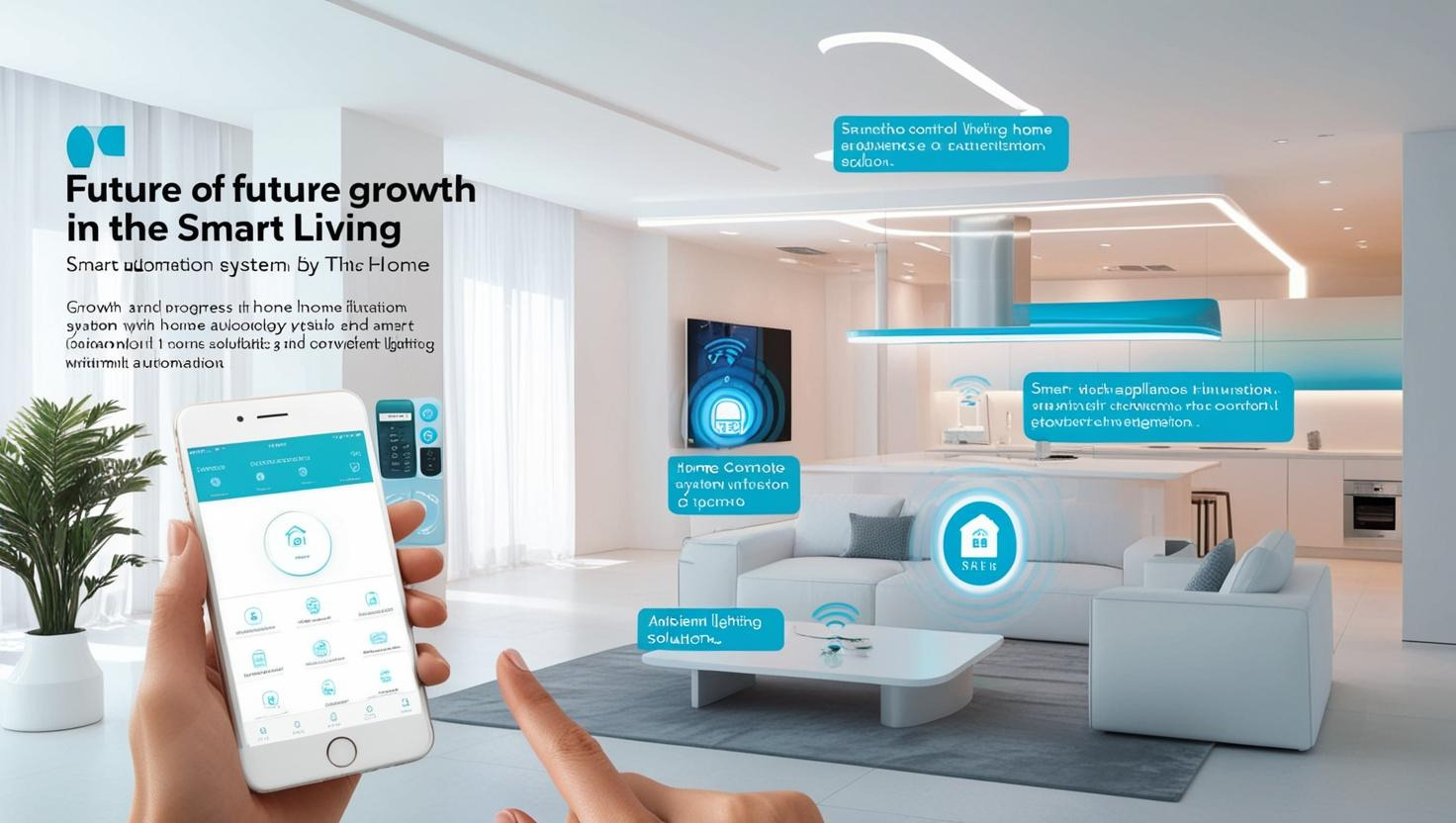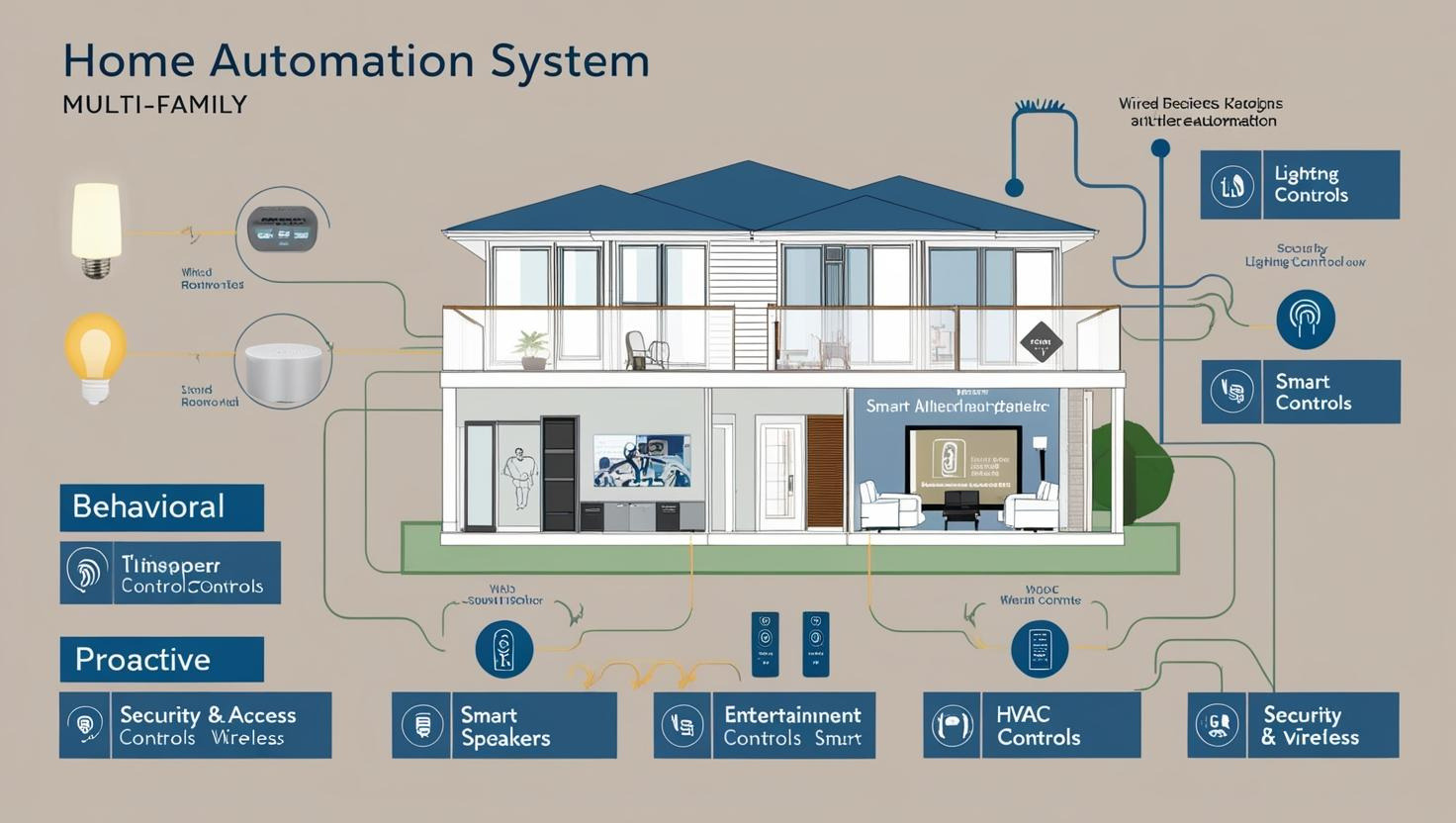The Future of Smart Living: Growth and Innovation in the Home Automation System Market
The home automation system market is experiencing rapid growth as smart technology continues to revolutionize the way people interact with their living spaces. With the increasing adoption of connected devices, artificial intelligence (AI), and the Internet of Things (IoT), home automation has transformed from a luxury to a mainstream necessity. Consumers are now seeking smarter, more efficient, and secure homes that can be controlled remotely with minimal effort. The rise of voice assistants, mobile applications, and wireless connectivity has further fueled the demand for automated solutions that enhance convenience, energy efficiency, and security.
Key Drivers of the Home Automation System Market
One of the key drivers of the home automation system market is the growing demand for smart security solutions. Homeowners are increasingly investing in smart locks, surveillance cameras, and motion sensors to enhance the safety of their homes. Advanced security systems now feature AI-powered facial recognition, real-time alerts, and remote monitoring capabilities, allowing users to access live footage and control security features through their smartphones. The integration of smart security devices with voice assistants like Amazon Alexa and Google Assistant has made it easier than ever for consumers to manage their home security with simple voice commands.

Download PDF Brochure for Info @ https://www.marketsandmarkets.com/pdfdownloadNew.asp?id=469
Enhancing Energy Efficiency with Smart Home Automation Technologies
Energy efficiency is another significant factor contributing to the expansion of the home automation market. Smart thermostats, lighting systems, and energy management solutions help homeowners optimize energy consumption by automatically adjusting settings based on occupancy and usage patterns. These technologies not only reduce electricity bills but also contribute to sustainability efforts by minimizing energy wastage. Automated lighting systems can dim or turn off lights when a room is unoccupied, while smart thermostats learn user preferences and adjust temperatures accordingly. Governments and environmental organizations worldwide are promoting energy-efficient home automation solutions through incentives and regulations, further driving market growth.
Entertainment and convenience are also major contributors to the increasing adoption of home automation systems. Smart speakers, voice-controlled home assistants, and wireless entertainment systems have become common in modern households. Streaming services integrated with smart TVs, multi-room audio systems, and automated home theaters provide a seamless entertainment experience. Consumers can now control their entire entertainment ecosystem with a single app or voice command, eliminating the need for multiple remote controls and manual adjustments. Additionally, smart appliances such as refrigerators, washing machines, and coffee makers are adding to the convenience factor by offering remote control capabilities and personalized automation.

AI and IoT: Transforming the Future of Smart Home Automation Systems
The integration of artificial intelligence and IoT is revolutionizing the home automation landscape. AI-driven home automation systems are capable of learning user behavior, predicting preferences, and automating tasks without manual intervention. IoT-enabled devices communicate with each other to create a seamless ecosystem where lighting, temperature, security, and entertainment systems work in harmony. Smart hubs and centralized control platforms are becoming more advanced, allowing users to manage all connected devices from a single interface. With the rise of 5G technology, the speed and reliability of home automation systems are expected to improve, enabling faster response times and better connectivity between devices.
The residential sector remains the largest consumer of home automation systems, but commercial applications are also on the rise. Smart office buildings, hotels, and healthcare facilities are adopting automation technologies to improve efficiency and enhance user experience. Automated climate control, lighting management, and access control systems are helping businesses reduce operational costs while providing a comfortable and secure environment for employees and customers. In the hospitality industry, smart hotel rooms equipped with voice-controlled assistants and personalized automation features are gaining popularity among travelers who seek convenience and a high-tech experience.
Challenges in Home Automation: Cost, Compatibility, and Security Concerns
Despite its rapid growth, the home automation system market faces several challenges. High initial costs, compatibility issues between different brands and platforms, and concerns about data privacy and cybersecurity are some of the barriers to widespread adoption. Many consumers hesitate to invest in home automation due to the complexity of installation and integration with existing infrastructure. Additionally, as smart homes become more connected, the risk of cyber threats and data breaches increases. Manufacturers and service providers are actively working on improving security protocols, encryption methods, and user authentication to ensure data protection and build consumer trust.
Home Automation in the Future: AI, IoT, and Energy-Efficient Smart Homes
The future of the home automation market looks promising, with continuous advancements in technology driving innovation and adoption. The development of more affordable and user-friendly solutions is expected to make smart home systems accessible to a wider audience. The rise of sustainable smart homes, powered by renewable energy sources and integrated with energy storage solutions, will further contribute to market expansion. Additionally, advancements in AI, IoT, and edge computing will enhance the intelligence and responsiveness of home automation systems, making them even more efficient and personalized.
As the demand for convenience, security, and energy efficiency continues to grow, the home automation system market is poised for sustained expansion. With ongoing research and development, smart home technology will become more intuitive, interoperable, and accessible, shaping the future of modern living. Whether it’s automating daily tasks, enhancing security, or optimizing energy consumption, home automation systems are set to redefine the way people experience their homes, making life smarter and more connected than ever before.
80% of the Forbes Global 2000 B2B companies rely on MarketsandMarkets to identify growth opportunities in emerging technologies and use cases that will have a positive revenue impact.
- Food Packaging Market Size Set for Strong Growth Through 2030 Amid Rising Demand for Convenience Foods
- Fertilizers Industry Set to Grow at 4.1% CAGR Through 2030
- Leading Automated Guided Vehicle Companies 2024: An In-depth Analysis
- CHARGED UP: SHIFT TO E-MOBILITY AND THE EVOLUTION OF TRANSPORTATION
- Global Automotive Market: Predictions For 2024



